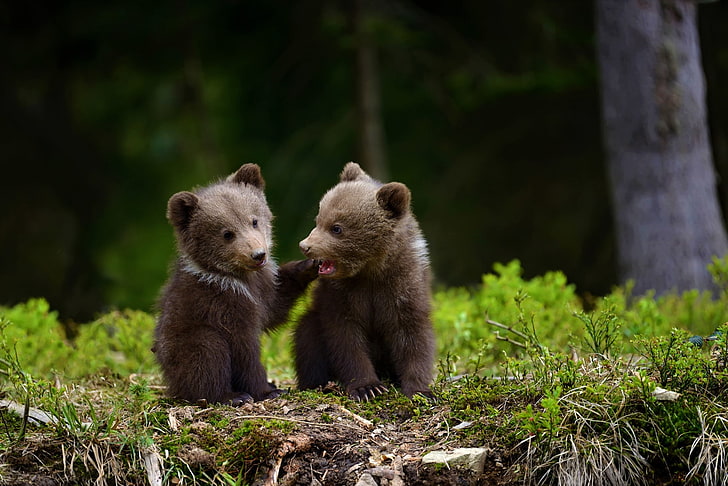Debate as Old as Time: Beauty and the Anthropocene
Have you ever read that story about the little blonde girl who breaks into a random house in the woods, tries out all the furniture and food, and decides, "This place could use some renovating"? However, all of her renovations make the home uninhabitable for her and the family of bears that legally own the place. There's a very subtle moral to that story, and humans could really learn a thing or two from it. If it ain't broke, don't break it!
 | ||
| Get in, loser, we're going to learn about the Anthropocene That's right, Mr Bear in a Taxi, today we're talking about the Anthropocene - the Age of Man - and, specifically, how it all began. And, as the title of this blog suggests, it's a contentious issue. There are many possible events that might mark the beginning of the Anthropocene - the most popular being the Industrial Revolution following World War 2 - but there are a few fascinating alternatives that I want to explore today - such as the impact of the very first farmers and the advent of colonialism! So, let's dive into a debate as old as time...
Could something as seemingly mundane as humans settling down and beginning to farm somewhere around 7000 years ago really mark the beginning of the Anthropocene? It's possible, according to various scientific figures. The impact that early farmers had on the environment may seem small compared to that of modern humans, but that doesn't mean it's not significant. Some have argued that early farmers weren't particularly good at what they were doing - at least, they weren't as good as we previously thought - and thus practiced unsustainable farming, resulting in deforestation occurring at a relatively large scale. This would have lead to an increase in both carbon dioxide and methane - two greenhouse gases you are likely very familiar with. Crop farming and the domestication of livestock also likely added to this increase in greenhouse gases - through bodily functions I am too mature to make jokes about, such as burping and farting. And these farming practices weren't only occurring in one part of the world - they were happening globally. Thus, it is plausible that early humans could have had so great an effect on Earth's atmosphere that Anthropocene may have begun centuries ago. However, not everyone agrees with this proposal. It has been argued that the impact of early farmers is not significant enough and does not represent an irreversible change, and thus cannot mark the beginning of the Anthropocene. So, what event did have an irreversible impact on the world, I hear you ask your screen? How about the advent of colonisation - specifically, colonisation of a place called America. When Europeans touched down in the New World, they came bearing germs (that's not a bear pun, we're passed that now). A series of epidemics - accompanied by famine and violence - resulted in the death of around 50 million indigenous people in what is known as the Great Dying. As a result, land use significantly decreased and reforestation occurred, resulting in noticeable atmospheric cooling around this time. With 90% of the indigenous population killed, Europeans gained control of the land and created a global trade market which laid the foundation for the globalisation we experience today. Such globalisation led to the spread of plants and animals to foreign lands, irreversibly altering these spaces, their ecosystems, and the climate as a result. So, maybe the Industrial Revolution wasn't the beginning of the Anthropocene - maybe the Anthropocene began when the first farmers began, well, farming. More likely, it began with the advent of colonisation, the impacts of which are much more significant and, arguably, irreversible. But maybe we're not even in the Anthropocene - after all, some people think the concept of an Anthropocene is arrogant. Regardless, it's clear that humans have had a significant impact on the functioning of Earth for a very long time. And like with "Goldilocks and the Renovations of a House That Wasn't Hers" that impact has not been good, and the consequences are now breathing down our neck. But the story isn't over yet. The Anthropocene may be raging on, but if humans have the power to change the Earth, we have the power to save it. |


Love the title, the article is also well written
ReplyDeleteThank you so much!
DeleteBrilliant article, never disappoints
ReplyDeleteThank you, you're too kind!
Delete